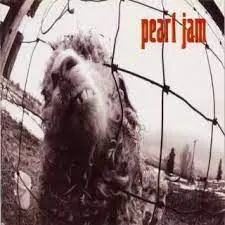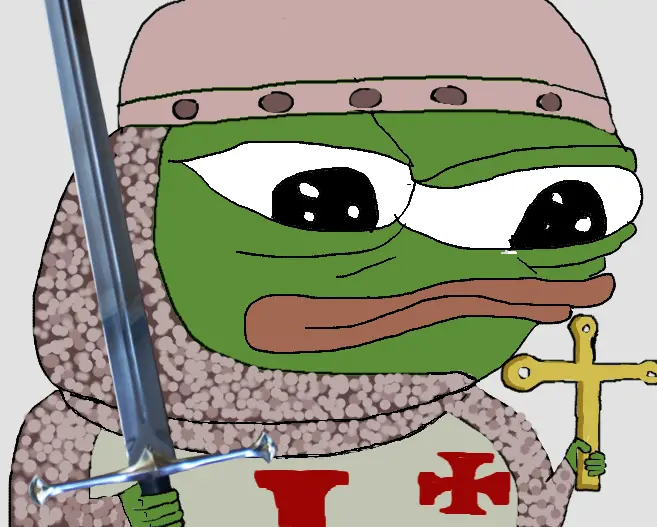Small unit leadership. Units down to the squad level (13 Soldiers/Marines), are in control of themselves. They are given objectives, constraints, and all relevant info, then told to achieve the mission. They’re also in constant communication with other nearby units. There is no solid plan. It is all contingency.
Squad leaders get a 5 paragraph order: SMEAC
- Situation: What the battle field look like.
- Mission: What needs to be accomplished. Who, what, when, where, and most importantly, why? The why lets unit make adjustments as necessary.
- Execution: Overall greater goal, enemy weak spots, and what other units will be doing for the mission.
- Admin & logistics: Beans (food), bullets (ammo), band-aids (medical info/gear/plans), & bad guys (EPWs)
- Command & signal: Command structure and communication matters
These units figure it out on their own and coordinate with other units that are in control of themselves also. From what I hear, Russian troops are all dependent on commands from an officer! lol. That would be insane in the American military. Everything would get paralyzed every time there is an unexpected issues, which in battle, is basically all there is. Battle is a series of unexpected issues. To quote the philosopher Mike Tyson, “Everyone has a plan until they get punched in the mouth.”
tl;dr: The American military is trained to function assuming units know how they function best and everything will go to shit. It’s designed to maximize individual strengths and be chaotic af. American units don’t know what they’re doing until they’re doing it.
An old NCO once told me that “the first casualty of war is the plan.” I don’t know where he got that from, but I’ve always liked that quote.
The great philosopher Mike Tyson famously said “everybody has a plan until they get punched in the face”
It was Eisenhower maybe that said “plans are worthless, but planning is invaluable.”
Yup, if you don’t get down to plan E, you’re not running a war, you’re executing a genocide.
Iirc it was some German general around the first world war.
Edit: it is probably based on von Moltke the elder a prussian field marshal
„Kein Operationsplan reicht mit einiger Sicherheit über das erste Zusammentreffen mit der feindlichen Hauptmacht hinaus.“
That’s awesome, thanks for sharing it.
I’ve also heard it as “no plan survives contact with the enemy.”
And yet, it’s a famously specialised force with tons of complexity and supply chain overhead. Pretty much every other military is flying by the seats of their pants, by comparison, whether it’s a Canadian soldier with the MOS of “dunno, boats maybe, and your equipment is definitely filled with mold”, or a North Korean soldier that can change their own orders with a bribe of pork.
I feel like all four people in this document (including the author) had an angle of some kind.
I was in the US military, so that was my angle. Don’t know about the rest. @[email protected] seems like they might have been in the US military also.
Ah, isn’t that the key of it, though? A highly specialized force knows not just what they’re assigned to do, but what they’re supposed to do for the overall operation, making adaptation both possible and likely to not result in catastrophic failure.
A highly trained soldier knows what they’re supposed to do because they know what they aren’t supposed to do.
Yeah, I’m not saying it’s wrong - pretty much nobody gives rigid instructions a good review after working under them. Just another reason there’s a whiff of saltyness in the paper pictured.
Russian troops are all dependent on commands from an officer!
To me, that sounds like they never updated command and communication strategies from, oh… the 18th century? This works great where you have regimented battalions with muskets and bayonets, all lined up on a single battlefield with clear lines of sight. But introduce so much as an opposing guerilla unit or machine guns (let alone tanks, air support, and artillery you can’t even see) and it all goes to hell in a hand-basket.
There’s actually a very good reason why Russia operates like that - mutinies. If you give junior officers authority, in a political system like Russia’s where the leadership’s legitimacy is purely based on power and self-interest, they might decide they’d rather be the ones in charge. This was perfectly demonstrated when they gave a military unit autonomy, and that resulted in the Wagner mutiny.
Thanks for this perspective. I keep forgetting that culture is everything about how these social mechanisms exist and operate.
Nothing relevant to your comment, I just love your username.
Thank you! 😊 It gets more true every day. Yours is cool too. To me, it has a sense of paradox or maybe being on a different schedule than the rest of us.
Le grand art, c’est de changer pendant la bataille. Malheur au général qui arrive au combat avec un système.
The great art is to change during the battle. Woe to the general who comes to battle with a system.
Napoléon Bonaparte (google translation)
Mods, can you lock this post? Responses are entirely too credible.
Be the change you want to see in the world. Post something funny, I’ll upvote you.
I thought I just did. 😞
I’m very well re[g]arded so it’s possible this went over my head
It’s reasonable to assume that many of us are veterans or to put it another way; can just as easily explain the US doctrine as jerk off in a porta-john in under 5 mins during an Iraqi summer.
Can I come in time before I pass out from heat exhaustion?
Challenge accepted.
The boobs drawn on the wall should help.
Bonus points if you pass out right when you get that release. Gotta time it right.
That’s more like it!
NCOs and local autonomy is OP. The soldier with the most info is the one with a gun in his hand. The closer the command structure is to that information source, the better everything runs.
As Von Steuben once said, the sergeant is the most important man in the Army.
Also, Maxim #2: A Sergeant in motion outranks a Lieutenant who doesn’t know what’s going on
That’s my secret, Cap(tain): I never know what’s going on.
All of which has led American trainers to develop a rule of thumb: a sergeant first class in the U.S. Army has as much authority as a colonel in an Arab army.
https://www.meforum.org/middle-east-quarterly/why-arabs-lose-wars
This post is already too credible, so what the fuck, I might as well continue to dishonor it’s noncredibility even further.
You can’t really compare a modern major Arab army, to a western army. They serve different functions.
Major Arab armies, at least contemporary ones, are designed to primarily preserve the internal social order and hierarchy. They’re internal security forces, with war planes and tanks.
Which presents another problem, coup d’etats. You can’t risk your command staff aligning against your ruling class, or monarch, so they should not trained, or inclined, to cooperate too much. So you put rivals in charge a different branches, and make sure to purge anyone you cannot trust to preserve the status quo, above all else.
This also means small unit leadership and tactics are antithetical to the purpose of their military.
To be clear, I’m not talking about Arab militant groups or militias, and this is definitely not a function of race. It’s function of the types of political systems you currently find in much of, but certainly not all, of the Arab world.
Amazing. From what I heard Russia is the same, I’m wondering how is China (probably similar). Along with the known numbers, it also makes me think if there is even a credible threat to the US military’s dominance - probably not.
It’s also funny, how things like delegation of authority are very simple and proven concepts, yet it’s not used at a lot of places, even western companies. My squad only fights battles with ppts and clients, but I operate in the same way, often having weird interactions with other leaders, when I explain how I don’t hog power and information for myself unnecessarily.
That was a very interesting read. Now I’m super interested to read more papers comparing and contrasting military doctrine. Any ideas where to start?
This is worth its own separate post. Great read
I once read at the start of WW2 Germany’s military was decentralized and USSR’s was centralized. As the war progressed, that flipped. Certainly not the only reason why either side saw successes or failures but I thought it was interesting.
Also digging up a whole area with artillery and bombs after a stray bullet came from somewhere over there makes a coordinated defence difficult at least.
“The pinicle of military deployment approaches the formless. For if it is formless, then even the deepest spy cannot discern it, nor the wise make plans against it.” - Sun Tzu
Unlike the famously rigid and centralised structure of the Warmacht. /s
The pervitin-to-paperwork ratio was just way off
What’s the Ballmer peak for meth?
How cool is the acronym for that Division up top tho
I first thought that you meant “From a Russian document”, or FARD for short
Removed by mod
Yeah, we’re talking about the army that rolls out chain stores in warzones as SOP. Apparently it’s pretty haphazard from he inside too, but nobody else can remotely pull that off.
How are you going to keep up morale w/o a Big Mac?
You mean actual stores or fast food type places?
Both
I don’t know about gift shops, but definitely fast food and probably clothes too.
Yep, there’s a guy buying shoes in one of the Wikipedia article’s pictures. Appliances and electronics too. Anything a soldier could reasonably want to buy, although apparently they have their own brand for auto sales, as opposed to a chain.
Navy SEALs eating government-supplied but non-free Big Macs as bullets whistle overhead is just the most aggressively American. I also get a kick out of soda fountains on submarines, although it makes total sense from an engineering perspective.
So, what’s the MOS code for Hooters specialist?
8OO8S
Viet Cong heard that.
Lieutenant-Colonel Ferrando approves this meme!













